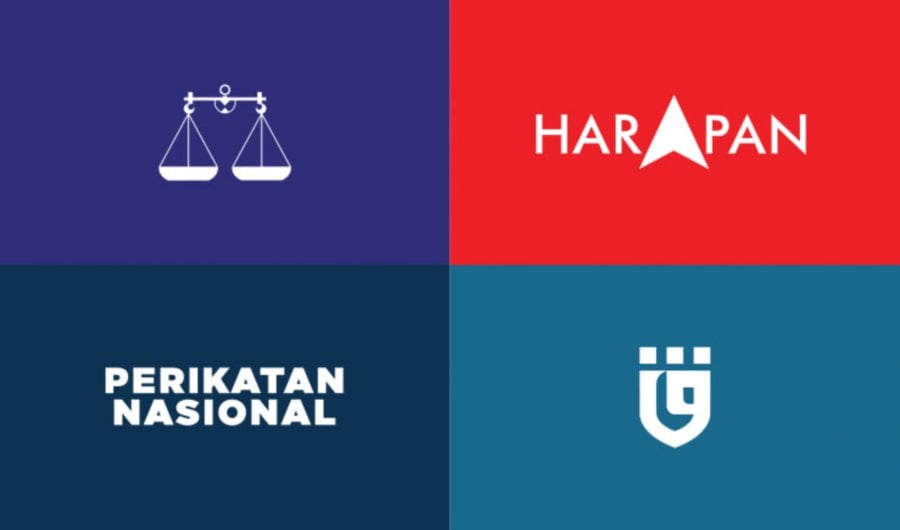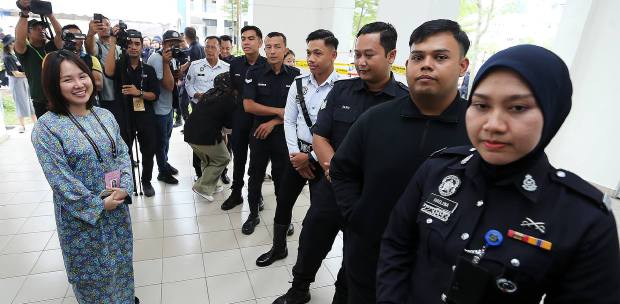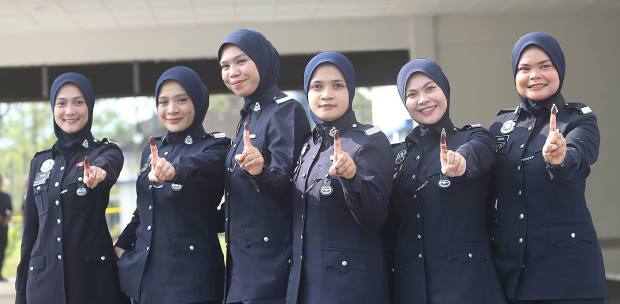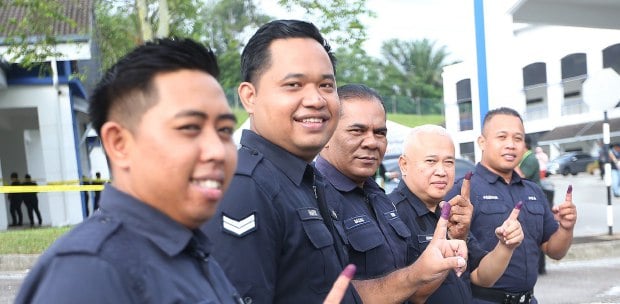WHY are some folks fond of repeatedly advising us to "vote wisely"?
I mean, does your husband or wife tell you, "Drive with your eyes open ah"? Or does your boss say, "Don't forget to come to work ah?
That's stating the obvious, right? We all want to vote wisely.
But let's give these folks some latitude in their utterances. Platitudes and pontificating are staples of the election season yah.
Still, we'd want to ask: How does one vote wisely anyway?
Some 'experts' (actually, many lah) suggest we study the track record of the party or individual.
We are to look for literature on them for the past four years, see what they did nicely (or badly) and what they said cleverly (or stupidly).
Read the news from A to Z. Scrutinise the lengthy manifestos. Then tick 'performance' boxes and see who gets the most points.
But I do not think many people are capable of weighing all that information and coming to a rational conclusion.
Especially those of us who spend lots of time in ubiquitous echo chambers, where partisanship becomes a Godzilla no Ultraman can zap into oblivion.
So, in the end emotion from the heart, stirred violently by the vileness and strangeness of the world, becomes the rudder that decides who we vote for.
Facts in the head have little chance because they are malleable and can be batted away. But we won't admit it.
We like or loathe one party or individual forever. We dismiss what others say about the party or its leaders, no matter the rationality of the statement.
In fact, what they say fertilises our passion and anger.
You see, a man may love many women (his weakness), but a woman can love only one man (her strength). We, who are so attached to party and person, are that woman (but sadly, this attribute is our weakness).
Does tribal loyalty, too, explain our action (or inaction)?
Consultant clinical psychologist, Urmilah Dass, talks about it in terms of the "familiarity principle".
She tells me people choose the familiar even though it may not be the best option, because they find comfort in sameness.
"Studies have shown that we are attracted to what is familiar to us, and that repeated exposure to certain people will increase our attraction to them.
"We are attracted to them because we consider them to be safe and unlikely to cause harm. Another reason can be greed. It suits the person because there may be rewards attached to it."
So, let's assume you are not a fence-sitter but a fervent fan of Barisan Nasional or Pakatan Harapan or Perikatan Nasional.
You quickly dismiss the "crap" people are saying about your favoured coalition, but readily embrace rotten stuff that's being dumped on the other side.
What can make you change your mind, make you feel differently?
Urmilah thinks the most likely way "to make one see things in a clearer manner is to have the facts of the matter readily available and easily accessed".
She also says we should share the truth without bias so people can make informed choices.
"Unfortunately, this process takes a lot of time because choosing the truth takes a lot of courage."
Yes, I agree with her. It takes a lot of time. Effort and sacrifice, too. But we don't have that luxury or inclination in this election cycle, I think.
In fact, I don't believe entrenched beliefs will change in my lifetime.
Unless a calamity strikes.
For only a disaster, in every sense of the word, can make us think hard about our choices. Like when someone we trust bilks the country out of billions.
In the meantime, we will listen to "Vote wisely ah", but vote with our hearts.
The writer is NST production editor
The views expressed in this article are the author's own and do not necessarily reflect those of the New Straits Times






